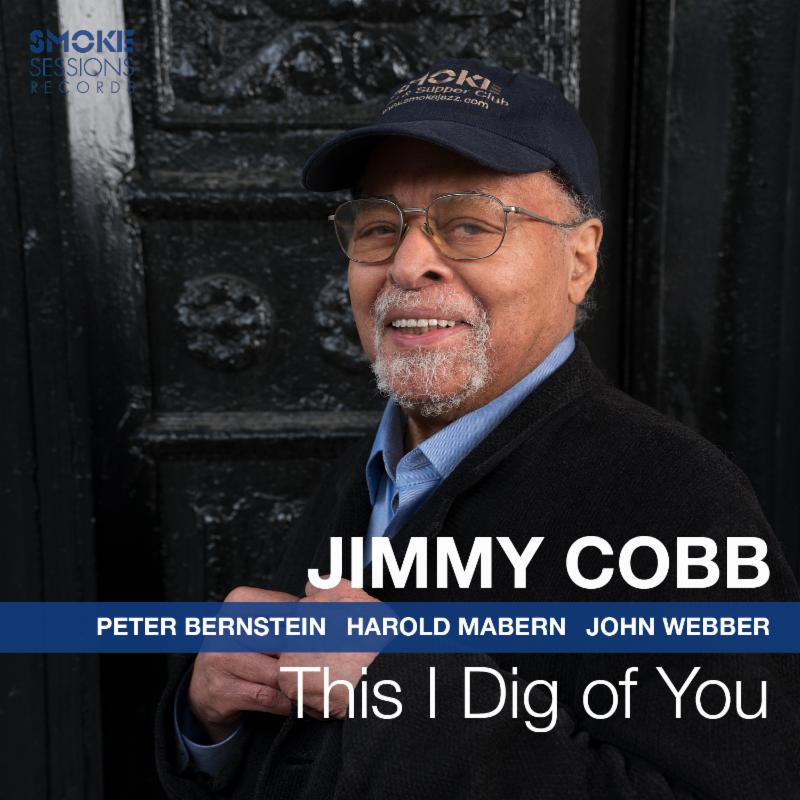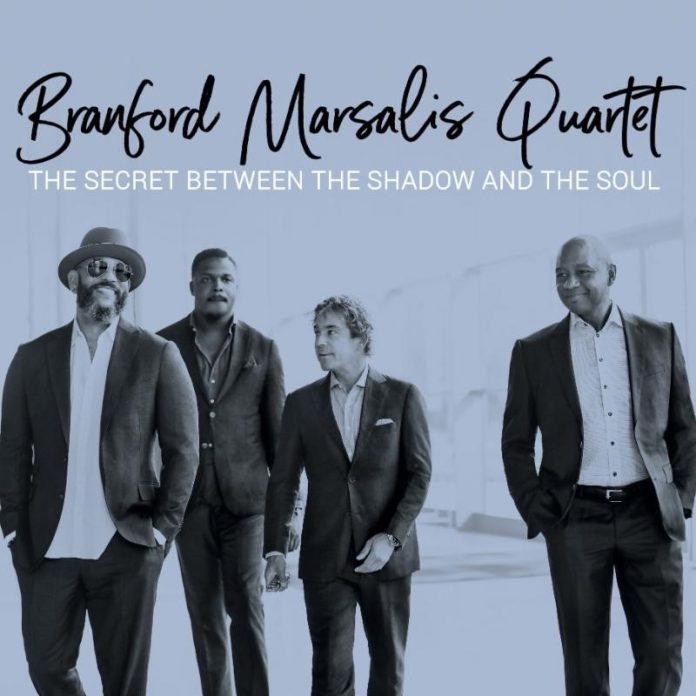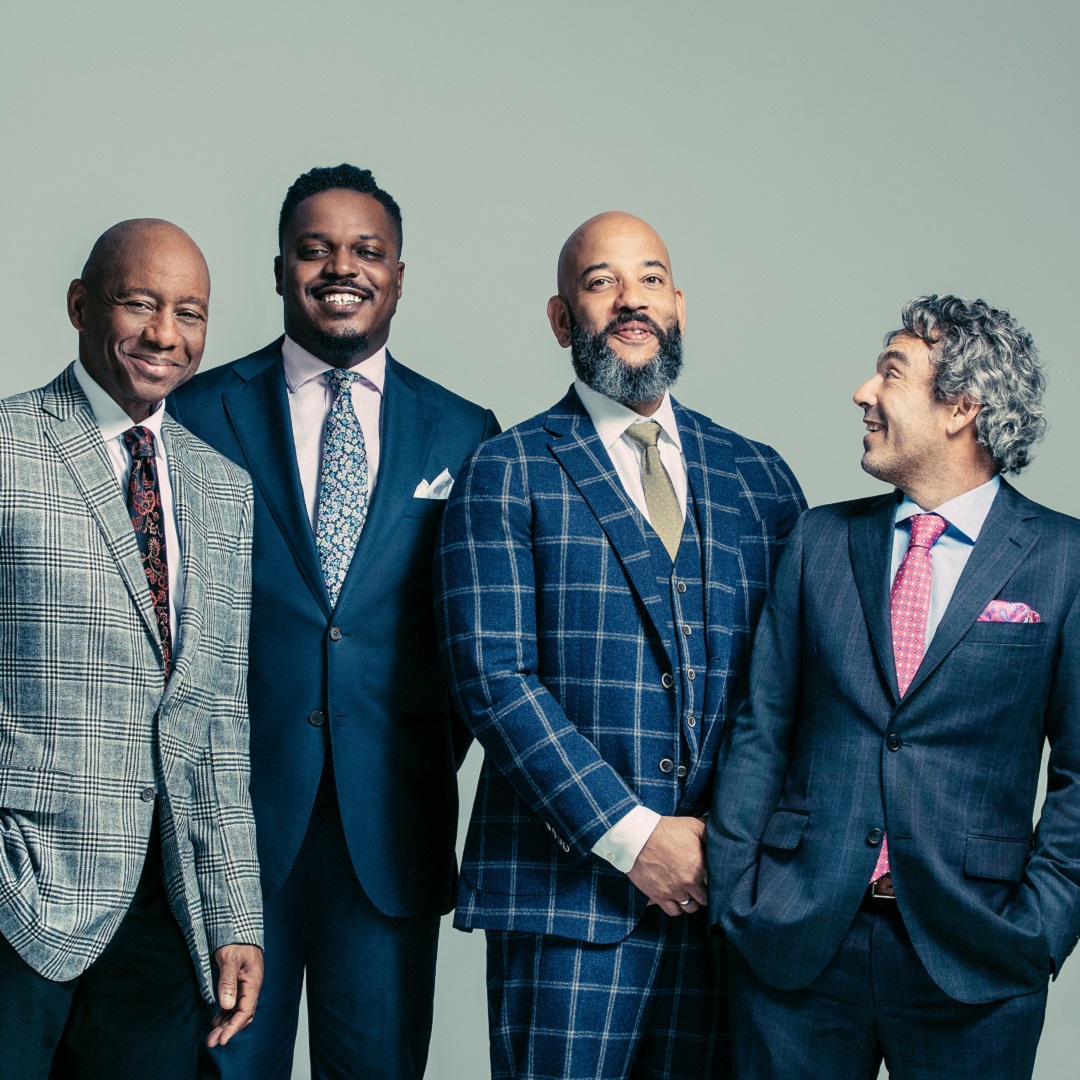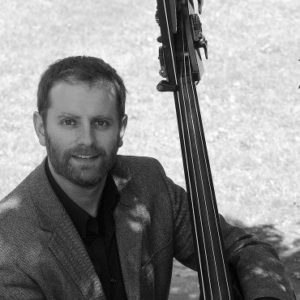 |
| Trumpeter Wallace Roney |
Blue Dawn-Blue Nights is your 21st album as a leader.
What's the key to consistently making great recordings?
As long as I'm living, as long as I hear music in my head,
I've got to get it out, and that's the key. Just be true to hearing the music
or the sound that's in your head. The other part of it is always trying to take
the music further. One step beyond.
In your bands, you always have veracious young musicians like
Art Blakey had in the Messengers long ago. Why do you staff your group with
such raw talent?
Art Blakey, Buhaina,
we'd call him. He used to do that, but people forget, Miles Davis did it too
with Herbie Hancock, Ron Carter, Wayne Shorter, Jack DeJohnette, Keith Jarrett,
Chick Corea, and Gary Bartz. Those guys were young back then. So, Buhaina and
Miles understood the power of young minds, but it's not just young minds. You
must have a certain young mind, a mind that's willing not to cheat the music,
but take the music forward. That's the kind of young guys I like.
When did you meet Miles, and how did he help shape your playing?
I started loving this music when I was three years old. That
was the kind of music I fell in love with, and when the rest of my little
friends were listening to R& B, I was listening to progressive jazz. And I'm
talking about three years old, and I'm listening to Seven Steps to Heaven. And The Freedom Rider, because that was
the music in my house and that's the music I loved. My father was listening to
it, but he was listening to other stuff, too. But I chose to hear that music,
and in that music, Miles was my hero. Miles and Trane and Ornette and
Cannonball, Horace Silver, and Mingus.
Then I heard Dizzy and Bird, and that blew my mind. So, by
the time I met Miles, well, I was listening to him and following every record
he made. And then, when I became an artist on the scene, I met him when I was
23 years old. I was playing on a retrospective concert for him, when he was
getting his honorary degree. And I played on it along with a lot of his other
alumni and some R& B guys, like Peabo Bryson. And George Benson.
And I was part of a seven-trumpet thing that was doing a
fanfare for him, and we took a couple of choruses of Blue Beach with
the rhythm section of Herbie, Tony, and Ron, and then Mile’s band came on and
played afterward, his latest band with Darryl Jones and Bill Evans.
Darryl had just joined the band, by the way. And Al Foster was in the band, too.
Anyway, afterward, he asked me to come up, and I met him. He
said he heard me, he liked what I was doing, and gave me his number to come
over to his house. And that's how I met him.
When you and Miles first connected, and when you first
went over to his house, what was the conversation like? Did you guys talk about
music?
Oh, it was about music, but the first thing he said when I
walked into his doorway is, "I never liked Brownie." Clifford Brown.
He said, "It's not that I was jealous or anything, he was a nice enough
guy, I didn't think he played as well as everybody thought. That was the first
thing he said to me.
At the time, you probably were a Clifford Brown fan.
I was a Clifford Brown fan. Miles was still my idol. Still,
my hero. But I was a Clifford Brown fan, you're right. But I wasn't going to
argue with him because I wanted to understand where he was coming from and
learn the lesson he was teaching me, and I'm glad I did.
When you became a well-known bandleader and had a bunch of
acclaimed recordings under your belt, did you ever get tired of the comparison
to Miles, or people saying Wallace thinks he’s Miles Davis.
No. I never get tired of the comparisons to Miles. I get
tired of the critics trying to make it into a negative. Because to me, it's no
comparison. Miles Davis is the greatest ever. What I'm trying to do is continue and push forward from the lessons I learned from him and try to play
this music. I'm not trying to do anything else but play music, you know?
What was the greatest lesson that he taught you that you
still, carry with you today and that you share with the young musicians in your
bands?
To learn everything you can and learn everything about the
music and then be yourself. And that's one thing I think Miles might've liked
about me that the critics or people don't understand. I tried to learn
everything he knew. I didn't try to get just a little piece of it. I tried to
get all of it.
And that's the thing when you learn, and you want to learn
all of John Coltrane. You want to learn all of Ornette Coleman. You want to
learn all of Art Blakey. You want to learn all of Max Roach. I mean, every
little piece, you want to learn every part of Herbie, every part of Elvin. You
want to learn every part of rock music, every part of Mozart. Every part of the chief
orchestrator or chief rhythm guru in Africa. You want to learn everything about
it. Why it works and use it, and then come out and use it your way.
I've seen you in concert many times. You come out, start a
tune, then you go backstage and let the band do their thing. Why do you leave?
I'm listening to shape what the musicians are doing. That's
what I'm doing. I'm still on stage. I get out of their way, but I'm listening
to see where to take the music next. Where I'm going to end the song and where
I'm going to blend it with the next song. From the beginning of the set to the
end of the set is a continuum.
I asked that question because Miles was criticized when he
would turn his back to the audience and play, and the audience felt he was
being a jerk. Miles said the same thing that you just said, that he could hear
the band better and he was trying to figure out some stuff. It wasn't about
that, about being disrespectful to the audience or anything like that.
Right. But with that said, I don't turn my back to the audience, do I?
No, I just noticed
that you walk off stage.
I walk off the stage.
So, people can focus on what's going on instead of looking at me while I'm
playing. But what I'm doing is listening to them and trying to coalesce what
they're doing and what the next evolution of the music is going to be. That's
what I'm doing.
Horace Silver was another significant influence on you
musically. When did Horace come into your musical life?
Well, Horace was an influence on me. There's a lot of people
that were big influences on me. I had auditioned for his band when I was 18. I
didn't get the gig, but Horace said to me, "Man. I could hire you right
now, but I think I would be hurting you." And he taught me to pay
attention to the chord changes in the chords. He said, "I hear what you're
trying to do, but I want you to do it instead of just hitting and missing. In
other words, getting every one of those chords, and if you're going to play off
the chord, understand how to play off the chord, which you try to do."
So Horace really influenced me because I was so hurt I didn't
get the gig, I sat home and I learned every part of the harmonic structures
that I was playing in, and that's why Miles became even more important, because
he really showed me how to take those chords and how to take the notes, and
bend the chords a certain way. He taught me even more than what I was trying to
get to, you know? So, it became a quest to advance what you can do melodically
and harmonically.
After you got your chops together, did Horace eventually hire
you?
No. Only on those
auditions. But Horace was so beautiful. I'll tell you a great Horace Silver
story. I did an audition, and he kept me up there for the week, and he paid for
the hotel, and we talked, and that's when he was telling me things. I'd go in his
room and play for him, and he would instruct me on how to play chords. He’d say,
"Right there. You missed a chord right there."
That was 1978 or 79. And then six years later I was playing
with Tony Williams. And we were playing in a club called the Montmartre in
Denmark. He was there. By that time, man, I had been stretching the
harmonies and trying to go beyond what I had already learned, and I was going
for it.
And Tony was
encouraging me too, and I had been hanging with Miles, and when we got through
that set, Horace Silver jumped on the stage and grabbed me and hugged me. He
said, "Wallace, wow. You played your booty off, man. " And then I
thanked him, I didn't know what else to say.
And then he went to
Tony Williams and started bragging to Tony about me, so Tony comes to me and
says, "Man, Horace was just raving about you." I didn't tell Tony the
story, the beginning- And then one of my friends who was playing with Horace
had told me, "Man, Horace was talking about you. He was talking about when he
first met you and how great he thought you were then, but what you evolved into
now."
What're your thoughts on where jazz is now?
Well, I don't have any thoughts where jazz is now. That's
like saying where life is now. I can say what life is today, but then a million
years from now, it'll be different. So, you must accept where things are. You
can't tell whether it's good or bad, you must live it, you know?
If a young musician says to you, "Mr. Roney, I've
studied your career, and I loved the direction that it's in or it's gone in.
What advice can you give me, so I can have a career that’s like yours, or
better?"
You can't have better. There are two reasons why you can't
have better. Whatever your career is, it is for you. So, it can't be better
than mine because it was for me. So that's number one. You can't have better.
Number two, how are
you going to have better than playing with Miles, being with Miles Davis,
playing with Tony Williams, being with VSOP, playing with Sonny Rollins,
playing with Jay McShann, Elvin Jones. Even people that were my peers never got
a chance to do that. And hang with Ornette Coleman. So how are you going to get
better than that? It's not possible. But even though it's not possible, that's
my life. So, their life, they're going to have to find what's better for them
or what's best for them.
If you studied my career, I appreciate that. I hope there's
something in it that can inspire you. That's what I would say. And I would say
if you ask for any advice play this music because you must. Don't play this
music to become a star. Don't play this music because you think you're going to
make a lot of money. Play it because you must, because you love it.
If you don't become a star, then what? Are you going to quit
the music? Because not everybody's going to be a star, even though they might
deserve it. What if you don't make a lot of money? Are you going to stop? Well,
if you didn't, then you might as well stop it because some people don't make a
lot of money. And so maybe you don't win all the awards. Maybe you don't win
anything. Is that your reason for playing? You got to go deep down and find
that deep reason for playing. If nothing happens, will you still play?
In your experience, how many jazz musicians have that
mentality?
All the great musicians did it for that. Even the ones that
became stars didn't count on being a star. Miles wanted to play with Charlie
Parker. And he kept learning and getting better because he wanted to play with
Bird. He wanted to catch up with Dizzy, he wanted to learn all that stuff Bird
was playing, and Thelonious Monk was playing. It had nothing to do about being
a star, you know.
I don't think Charlie Parker even thought about being a star.
He needed money. But man, Charlie Parker, on his days off, went across the
street to the tavern and played because he had to. John Coltrane never stopped practicing because he heard
something. Other musicians might try to do it because they wanted to be a star,
or they thought of it as a profession, but some musicians saw more of it. And
if you're going to play jazz, it's got to be more than a job.
Going back to “Blue Dawn-Blue Nights” is there anything you’d want
to add about its creation?”
I had taken these guys, these young musicians, and they come
to my house, and they want to learn, and they want to ask me questions about
these great artists that I played with like Herbie and Tony and Ornette Coleman
and Wayne, and of course Miles and Art Blakey and Elvin Jones and Billy Higgins
and all these people, and I would gladly show them stuff and tell them stories.
We started writing songs, and they'd write these songs, and
I'd start showing them some techniques. And I'm talking about the correlation
between music and all the music in the world, and the next thing you know,
those guys, they became a band just in a very natural way. And they were at the
house all the time rehearsing. And we just went right in the studio, said,
"Let's take it in the studio. Let's try these things."
And it worked out. It flowed very well. And when we would
play, suddenly, there was a beautiful synergy that came from this band.
Unfortunately, my nephew didn't stay in the band because his father felt like
he was better served to play with him than my band.
Emilio Modeste, the saxophone player on the new album, is 19,
and he has an aggressive approach and tone for his age. I heard him in Stanley
Clarke’s band at the Detroit Jazz Festival.
He's one of the original ones that came over and hung around
the house for years.
Are you going to record more with this band?
Let me put it like this. As long as I'm playing music, I will
record with my band, and as long as my band is a band, that will be what's on
the record. And in the same way that Bird did, the same thing that Art Blakey
did with Horace and Kenny Dorham, and then Horace and then Lee Morgan and Bobby
Timmons.
The same that Miles did with him and Trane. Everybody, they have a
band. You record with your band, and you keep recording because you're
documenting the evolution of the music being made. So, if this band sticks
together, there will be another record. If someone leaves for some reason, like
my nephew left, then he must be replaced with the next guy. The music keeps
going forward.



















